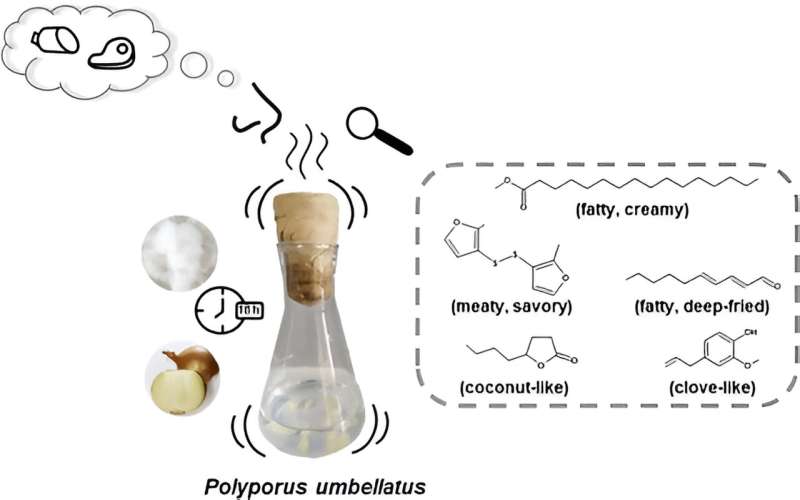This article has been reviewed according to Science X's editorial process and policies. Editors have highlighted the following attributes while ensuring the content's credibility:
fact-checked
peer-reviewed publication
trusted source
proofread
Making plant-based meat more 'meaty' with fermented onions

Plant-based alternatives such as tempeh and bean burgers provide protein-rich options for those who want to reduce their meat consumption. However, replicating meat's flavors and aromas has proven challenging, with companies often relying on synthetic additives. A recent study in the Journal of Agricultural and Food Chemistry unveils a potential solution: onions, chives and leeks that produce natural chemicals akin to the savory scents of meat when fermented with common fungi.
When food producers want to make plant-based meat alternatives taste meatier, they often add precursor ingredients found in meats that transform into flavor agents during cooking. Or, the flavoring is prepared first by heating flavor precursors, or by other chemical manipulations, and then added to products.
Because these flavorings are made through synthetic processes, many countries won't allow food makers to label them as "natural." Accessing a plant-based, "natural" meat flavoring would require the flavoring chemicals to be physically extracted from plants or generated biochemically with enzymes, bacteria or fungi. So, YanYan Zhang and colleagues wanted to see if fungi known to produce meaty flavors and odors from synthetic sources could be used to create the same chemicals from vegetables or spices.
The team fermented various fungal species with a range of foods and found that meaty aromas were only generated from foods in the Allium family, such as onions and leeks. The most strongly scented sample came from an 18-hour-long fermentation of onion using the fungus Polyporus umbellatus, which produced a fatty and meaty scent similar to liver sausage.
With gas chromatography-mass spectrometry, the researchers analyzed the onion ferments to identify flavor and odor chemicals, and found many that are known to be responsible for different flavors in meats. One chemical they identified was bis(2-methyl-3-furyl) disulfide, a potent odorant in meaty and savory foods.
The team says that alliums' high sulfur content contributes to their ability to yield meat-flavored compounds, which also often contain sulfur. These onion ferments could someday be used as a natural flavoring in various plant-based meat alternatives, the researchers say.
More information: Felix Stöppelmann et al, Generation of Meaty Aroma from Onion (Allium cepa L.) with Polyporus umbellatus: Fermentation System, Sensory Profile, and Aroma Characterization, Journal of Agricultural and Food Chemistry (2023). DOI: 10.1021/acs.jafc.3c03153
Journal information: Journal of Agricultural and Food Chemistry
Provided by American Chemical Society





















